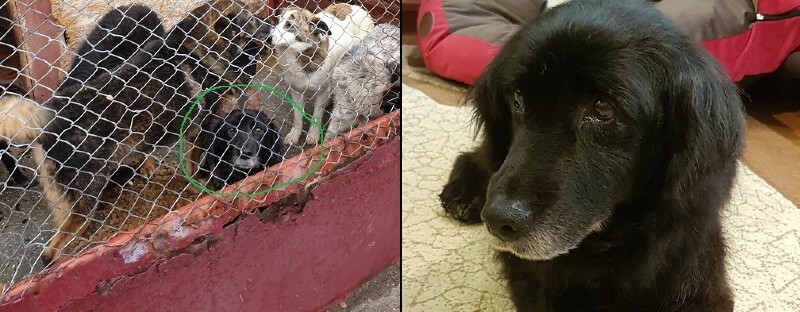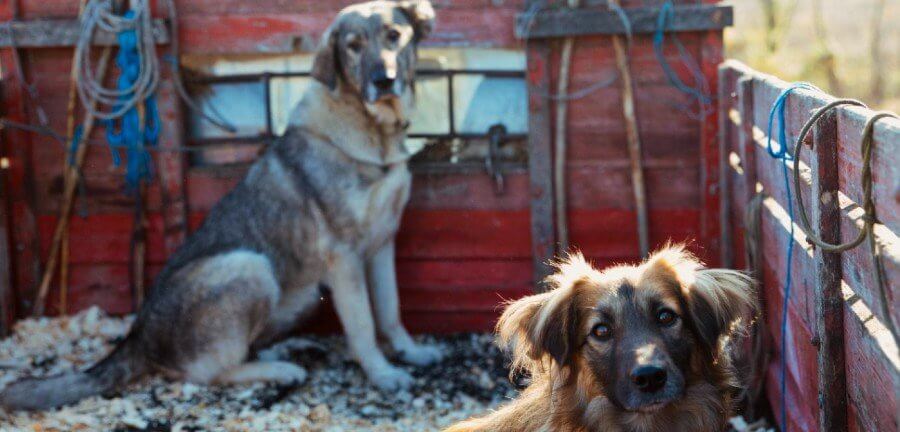The dog was black with filth. Jammed in a cage packed with other dogs in a Romanian animal shelter, he was nearly invisible. Nonetheless, he bravely lifted up his head to take a peek when PETA Germany staffers toured the facility. Skinny, soaking wet, and matted, Arko was a painful sight. However, after many baths, grooming, and lots of good meals and tender care, he’s now thriving in his new home.

Arko before and after being helped by PETA Germany.
PETA Germany and its local partner, Eduxanima, are holding life-changing spay/neuter clinics across Romania that are helping thousands of animals. The groups focus on rural and poor areas—where both dogs with guardians and homeless dogs are registered, spayed, and neutered. Animals are given free veterinary treatment, including for serious conditions such as tumors, skin diseases, open and inflamed wounds, and broken bones.
In Romania, over 600,000 dogs and thousands of cats live on the streets, spending their lives without a guardian to care for them, let alone a warm, comfortable place to sleep at night. Many suffer and die or meet a terrifying end after being captured by dogcatchers.
Even Romanian animal shelters are never safe havens, as they lack sufficient food, space, and protection from the cold. The animals there are often ill, and nobody cares for them. The majority aren’t spayed or neutered, either, which means they keep reproducing as long as they’re alive—and this continues even though Romania has a compulsory castration law for dogs.In addition to helping animals directly, PETA Germany works closely with local politicians, which is the only realistic way to improve the overall situation. For example, PETA Germany representatives met with the administrator of a municipal shelter with a proposal to transform it into a welcoming and safe place for animals, starting by offering free veterinary treatment and spay/neuter surgeries for all dogs who enter the facility.
The administrator agreed to end contracts with other local city councils requiring that the shelter act as a dogcatcher, which had caused severe crowding and animal aggression at the facility. The administrator proved his commitment by almost immediately forwarding the team a letter that he had sent to one of the town councilors. He also welcomed the offer to inform shelter staff about safely and humanely handling dogs. A workshop with a famous German dog trainer is scheduled to be held there at the end of April.
Getting to the root of the problem, PETA Germany also runs animal-care workshops in Romanian schools. These sessions help young people learn about the importance of having compassion and empathy for all sentient beings—because if the next generation understands the importance of animal rights, it will create a brighter future for everyone.
If you can, please support this crucial project by donating to PETA’s Global Compassion Fund so that PETA Germany can expand this important program.





